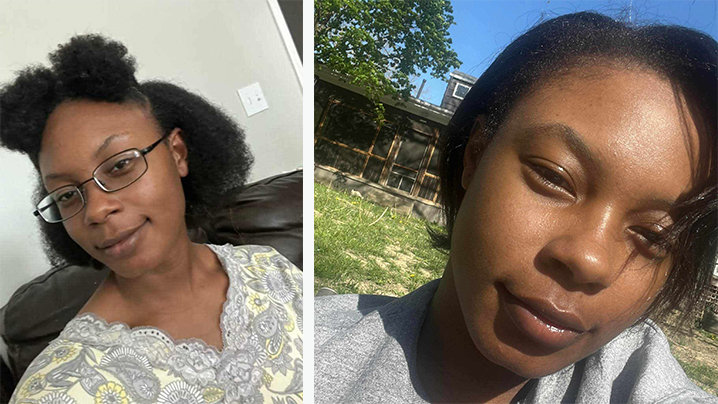This deal with ‘making a difference’
Published 6:38 pm Tuesday, November 13, 2018
Twenty-five years ago, my husband decided to change jobs because he wanted “to make a difference.” At the time, the main difference I was concerned about was the impending 70 percent decrease in his salary.
But after he went through all the hoops to become a Mississippi state trooper, we sold the house in Madison, packed our 2.5 kids into a borrowed truck, and headed toward a county line I’d never crossed before. Soon I was tasked with keeping the kids quiet in an 800-square-foot house while Daddy slept at odd hours.
The newly-minted trooper soon realized his “making a difference” ability was getting drunk drivers off the road, and for two years running he led the state in arrests. Seeing him at the head table at annual MADD banquets? Well, it was almost enough to make me stop telling people that “I married a marketing major and didn’t sign up for this.” In time, though, I watched some of his zeal dry up. It usually happened on Thursday afternoons during justice court.
Trending
If you’ve never seen a DUI lawyer grill an officer in court, you really should. It might just move you from showing support with cookie trays and thin blue lines to some productive civic intervention. Just saying.
My husband’s hardest day in the stand came soon after we moved a few counties south. By this point, his skin had toughened, but still, we were surprised when a deacon at our new church agreed to defend an alderman’s son’s DUI. Even though DUIs weren’t his specialty, this guy’s cunning was impressive. He managed to turn a clear case involving an underaged driver and a certified intoxilyzer reading into a battle of adverbs.
Were you directly behind the vehicle?
Directly?
Yes, directly.
What a victory — the young partier went back behind the wheel, and the lawyer/deacon/adverb specialist went on to become a chancery court judge. Meanwhile, 352 caskets went into the ground in Mississippi that year as a result of drunk driving.
Trending
Last week I decided to sit in on a justice court session to see if things have changed after two decades. The short answer: Not much.
DUI lawyers still make the big bucks by finding uncrossed t’s and undotted i’s. On this particular Wednesday, it was an unchecked box that let the accused go scot-free. Interestingly, the same night of that arrest, the officer had just worked an alcohol-related fatality. Yep, he’d just knocked on a citizen’s door and told them their loved one was gone forever. Dead.
You know, I don’t think I heard the word “dead” (or it’s adverb form “deadly” either, for that matter) the whole time I sat in court. Why is that? I heard words like “suspended” (as in jail time) and “lowered” (as in fines), but I don’t recall hearing a single sentence about the lethal recklessness of impaired driving. In fact, the only time I noticed the judge get riled was when he realized the admitted blunt-smoker on the stand was arrested while driving on a road the judge travels every day. Even then, it was more fine-lowering and jail-time suspending.
Let’s put it in pocketbook perspective. Last August, a judge fined a Scott County hunter $2,400 for illegally baiting a field during dove season. Last Wednesday, a judge fined a confessed drunk driver $754.50 for his crime. (Now, if that doesn’t get your dander up, you’d probably prefer reading a different columnist. As for me, my pro-life views extend to innocent lives affected by impaired drivers. Doves, not so much.)
Sitting there during proceedings, I also quickly realized little has changed regarding logic-defying defendants. My vote for the best testimony went to the guy who claimed he was too physically disabled to complete field sobriety tests but remembered the date of his arrest by his activities: “It was a Tuesday, because I played my regular round of golf that day . . .”
The afternoon did hold a couple of surprises. First, the county prosecutor seemed at odds with the two officers who took the stand, and I haven’t seen that before. Seems to me a little team work (and prior prep) may have secured some additional convictions. Instead, I watched more than one astonished defendant leave the courtroom smiling like the cat who ate the canary.
The second surprise, though, was a good one. Mr. ___________, 19, secured the services of a DUI lawyer who encouraged him to plead guilty to his crime. Imagine that. But here’s the best part: After sentencing, the young man walked over to his arresting officer and shook. His. Hand.
Wow.
Later, I asked that officer to help me make sense of what I’d seen in the courtroom. All the denying. The finagling. The pandering. He thought a minute, then loosened his tie.
“The only thing that’s going to truly change our society is a great awakening, Mom. Pray for one.”
Well, at least I know our study of church history resonated.
Kim Henderson is a freelance writer. Contact her at kimhenderson319@gmail.com.





